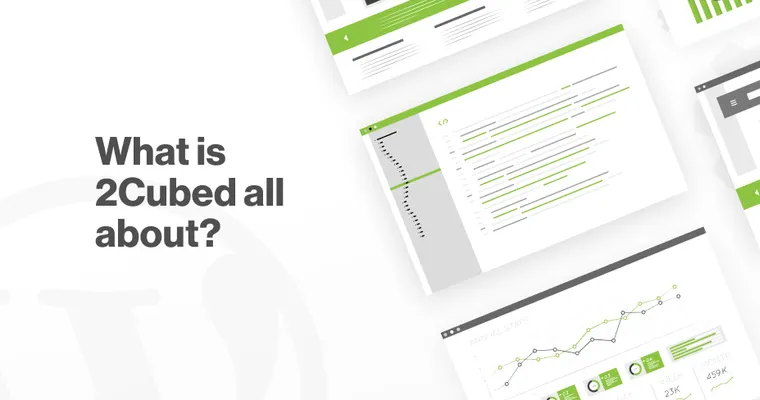Welcome to this week’s edition of the 2Cubed Newsletter. Here you’ll find the latest news about the Website Maintenance we have have been carrying out, insight into how to maximize your Website User Experience and some top SEO Tips to aid you in your efforts. Make sure to read to the end to see our message in regards to the upcoming GDPR regulation and what you need to do to ensure you stay in the loop and keep receiving our weekly newsletter!
SEO – Building Links Are The Key to Success
One of the primary ways search engines decide on which pages should rank highest is by looking at the links on those pages. When it’s clear that the content has high-quality links pointing at it, it gets a boost. Some people make the mistake of thinking that all they need to do is get as many links as possible rather than just important ones. This is not the case as the view taken by the search engines is very much “Quality over Quantity”. Some people ignore this and try many methods such as buying links or even building a sheer number of links themselves by dropping them in comments on other sites blogs, forum posts etc… This behavior will not be rewarded and will actually have a negative impact on your site. Search engines want to reward sites that are able to gain “hard links“. Hard links are effectively links that aren’t easily come by, effort has been taken to gain the link. A guest post in a publication with a high standard, one that doesn’t let just anyone write, might be an example of a hard link or getting a high-quality site to link to you from a relevant article or page on its site would be another example.
The type of site where it would be very beneficial for you to earn a link from would be one where you and potential customers regularly read. Build a relationship with another site where you can both mutually help each other.
There is one way in particular to legitimately earn hard links that’s consider quite easy to do, by being social! Get your site all over social media sites such as Twitter, Facebook and Google+. You can use these sites to share your content and in turn your followers on this site may share it with others. All that sharing is a “social signal” to the search engines that what is being shared is considered to be good content.
To Learn More About Effective SEO Methods For Your Website Click Here
Why is Website Maintenance so Important?
Website Maintenance is important to any and all businesses, big or small. Your website is like a display window into your business and it can have a huge impact on your site and business is perceived. A well-maintained website that runs efficiently is essential to be in today’s environment. Regular website maintenance helps aid in attracting and retaining customers, maintaining search engine rankings and effectively creating new content, products and services for the public. Your website no matter what it is, should always be centered first and foremost on delivering a great user experience. This can be achieved by routinely adding new content on your website keeping it fresh and by ensuring that all the contact points on your site are in working order constantly.
Another reason why website maintenance is so important is the fact that website maintenance is critical to the search-engine rankings. Websites with old content rank lower in search engine listings and failing to make frequent modifications can cause your site site to be pushed below your competitors in the listings and this will cause your business to suffer.
For risk management, you should always to have a business-continuity plan in place for your website incise you have severe maintenance issues such as site crashing etc.. You should also ensure that your hosting service provider has a backup and maintenance plan that is in line with your own business service levels, especially if you have a real-time or mission-critical website as this will be vital in helping to minimize negative outcomes when it comes to damage control of the situation.
Of course the best preventive is proactive action by making sure your website maintenance is up to scratch, to say website maintenance is important would be an understatement!
To Learn More About Website Maintenance CLICK HERE
GDPR: COMPLIANCE
In last weeks newsletter we touched on the upcoming EU law on data privacy known as “The General Data Protection Regulation (GDPR)”. The General Data Protection Regulation (GDPR), is the European Union’s new law on data privacy. To now be active in the EU, websites, including social media, will have to comply with the new regulations that will take effect on May 25. This will affect all businesses, big and small. Many businesses are worried as they are unsure what they need to do to be compliant with this new upcoming law. While it may sound overwhelming, there are ways to make compliance more manageable such as the following:
- Access
- Identify
- Govern
- Protect
- Audit



